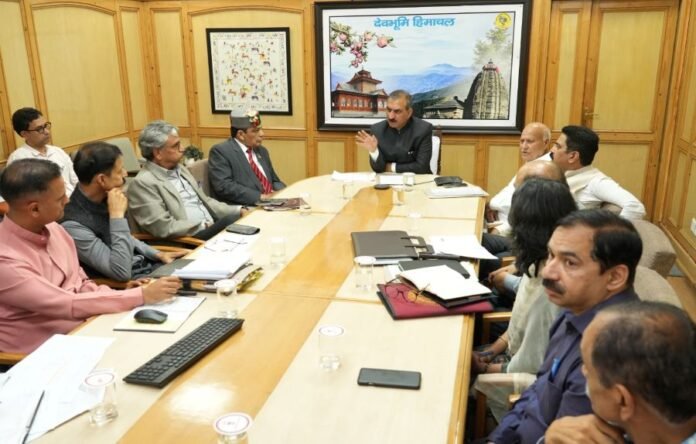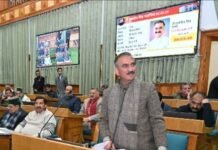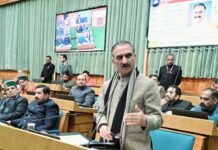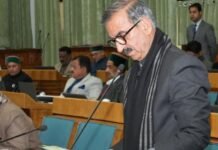In a bold push to revitalise rural livelihoods and strengthen the agrarian economy of Himachal Pradesh, Chief Minister Thakur Sukhvinder Singh Sukhu has directed the Animal Husbandry Department to establish dairy cooperative societies across the state on a mission mode. Chairing a high-level review meeting in Shimla, the Chief Minister emphasized that dairy development must become a cornerstone of rural empowerment and sustainable employment, particularly for the youth.
He highlighted that over 900 panchayats already have operational dairy cooperative societies and instructed officials to work diligently to increase their reach and effectiveness. These societies, he said, are not just a means to process milk but a strategic lever to uplift thousands of rural families by linking them to structured and remunerative markets.
Taking stock of the progress on the much-anticipated milk processing plant in Dagwar, Kangra district, the Chief Minister ordered the formation of a dedicated monitoring committee to expedite its construction. The plant, with a processing capacity of 1.5 lakh litres per day, is being developed at a cost of ₹225 crore and is expected to be operational by June 2026. Once functional, it will benefit dairy farmers in Kangra, Una, Hamirpur, and Chamba districts, creating a robust regional network for milk procurement and processing.
CM Sukhu reiterated his government’s commitment to bolstering the rural economy through agriculture and allied activities. He pointed out that the state has recently enhanced the minimum support price for milk, now offering ₹51 per litre for cow milk and ₹61 per litre for buffalo milk, in a move aimed at ensuring farmers get fair compensation. These efforts have borne results, with MILKFED reporting a 17 percent rise in milk procurement over the past three years.
In a further expansion of the dairy infrastructure, the government is planning to set up six new milk processing and chilling plants in various parts of the state. Locations identified include Jhalera in Una, Jhaladi in Hamirpur, Nahan in Sirmaur, Mohal in Kullu, Nalagarh in Solan, and Rohru in Shimla, with a total investment of ₹120 crore. This infrastructure will serve to enhance cold chain logistics, reduce wastage, and ensure timely collection and processing of milk from producers in far-flung regions.
The Chief Minister also urged MILKFED to aggressively promote ‘Him-Ghee’, a premium brand derived from Pahari cow milk. He noted that product branding, when backed by quality and traceability, could open up national and international markets for local dairy producers, further augmenting their income.
He also reviewed the progress of the state’s ongoing ‘Gau Sadan’ projects and instructed officials to fast-track their implementation. These facilities, aimed at the welfare of stray and abandoned cattle, form an essential part of the government’s comprehensive approach to livestock management.
By integrating policy initiatives, infrastructure investment, and branding, the Himachal Pradesh government is positioning itself as a pioneer in sustainable rural development through dairy-based enterprise. The roadmap laid out by the Chief Minister signals a new era for animal husbandry and dairy farming in the hill state—where economic development and grassroots empowerment go hand in hand.
#HimachalDairyRevolution #CMThakurSukhvinderSingh #HimGhee #DagwarMilkPlant #RuralEconomy #MILKFED #AnimalHusbandryHimachal #PahariCowMilk
This is an auto web-generated news web story.





